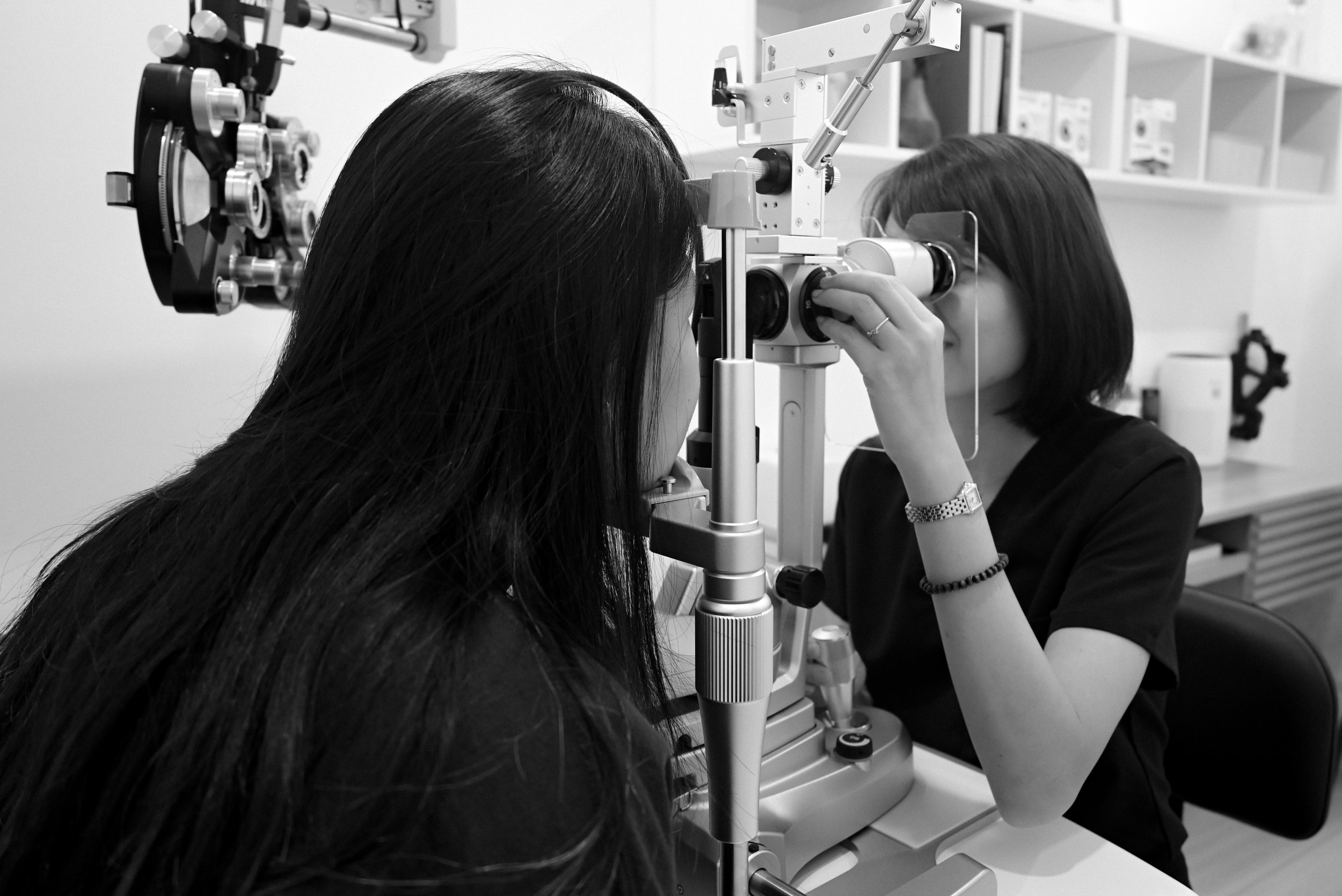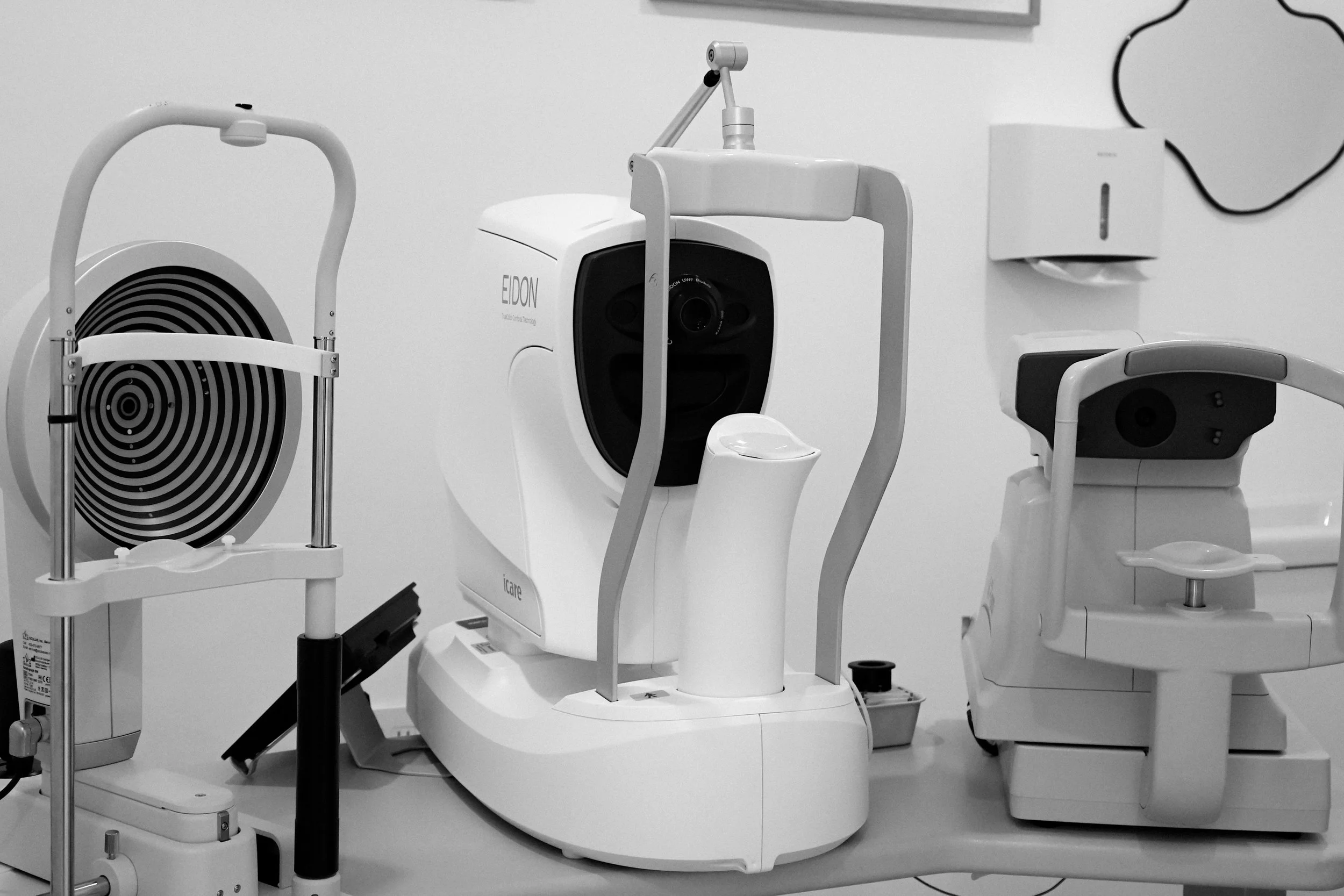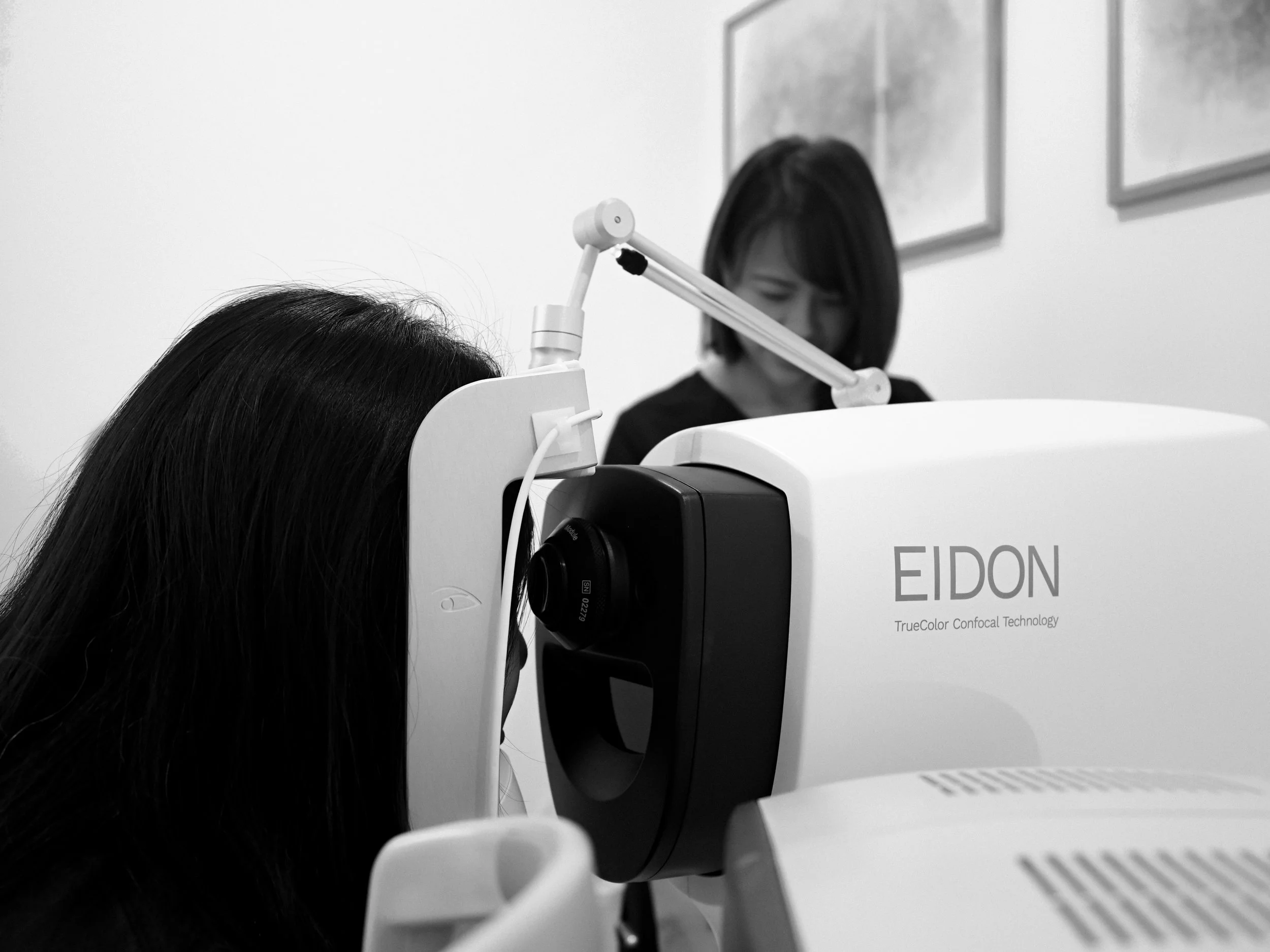Personalized Eye Exams for All Ages
Comprehensive Eye Exam
A comprehensive eye exam is a crucial component of maintaining good eye health. During the exam, we assess the overall health of the eyes, check for any signs of eye diseases like glaucoma or macular degeneration, and evaluate visual acuity to determine if a prescription for glasses or contact lenses is needed. Additionally, we perform tests to assess eye coordination, depth perception, and focusing abilities. Through a comprehensive eye exam, we can detect early signs of eye conditions and provide necessary interventions to preserve and protect your vision for years to come.
Adults should have an eye exam every 1-2 years, depending on any existing vision problems, eye conditions, or if they have been diagnosed with significant risk factors, such as diabetes, high blood pressure, thyroid disease, previous eye injuries, or a concerning family history of eye diseases. The eye care doctor will carefully recommend a frequency for routine follow-up exams based on the patient’s specific medical and ocular history.
Pediatric Eye Exam
During a pediatric eye exam, we thoroughly assess a child's vision, eye health, and eye teaming skills. We use specialized tests to determine if the child needs glasses and to check for any eye conditions that may affect their vision or ocular health. Early detection of eye problems in children is crucial for proper visual development and academic performance. We also provide guidance on proper eye care, including recommendations for screen time management and outdoor activities to help prevent myopia progression. According to the American Optometric Association (AOA) children should have their eye examined by an eye doctor at 6 months, 3 years, at the start of school, and then at least every 2 years following. If there are any signs that there may be a vision problem or if the children has certain risk factors (such as developmental delays, premature birth, crossed or lazy eyes, family history or previous injuries) more frequent exams are recommended. A child that wears eyeglasses or contact lenses should have their eyes examined yearly. Regular pediatric eye exams are essential for maintaining good eye health and vision in children.
InfantSEE®
We are proud to be a member of the American Optometric Association and to be enrolled as InfantSEE® providers. Through InfantSEE®, we provide a one-time, comprehensive eye and vision assessment to babies in their first year of life, usually between the ages of 6 and 12 months, offering early detection of potential eye and vision problems at no cost regardless of income or ability to pay.
InfantSEE® is a public health program designed to ensure that optometric eye and vision care becomes an integral part of infant wellness care to improve a child’s quality of life. This program was developed in partnership with the American Optometric Association, AOA Foundation for Science, Education and Charity, and The Vision Care Institute of Johnson & Johnson Vision Care, Inc., to stress the critical importance of the early detection, management, and treatment of ocular conditions and diseases.
Though babies can’t talk, optometrists use their clinical education, training and experience, along with instruments such as lighted toys to provide non-invasive eye and vision assessments for infants.
According to new data collected by the American Optometric Association (AOA) there is a growing need for early vision examination in infants. The data showed that two groups at greater risk for visual concerns were premature babies and minority babies.
Parents may learn more about the importance of infant vision care and the InfantSEE® program by logging on to www.infantsee.org. Please call our office to schedule your baby’s InfantSEE® assessment.
Contact Lens & Specialty Fits
Contact lens exams are crucial for ensuring proper fit, comfort, and health of your eyes when wearing contact lenses. During a contact lens exam, we will assess your vision with contacts, check the condition of your eyes, and evaluate how well your current contact lenses are working for you. It is essential to have regular contact lens exams to prevent any potential eye health issues and to update your prescription as needed. If you experience any discomfort or changes in your vision while wearing contacts, schedule a contact lens exam promptly to address any concerns and maintain optimal eye health.
Scleral lenses and rigid gas permeable (RGP) lenses are both types of specialty contact lenses that are used in eyecare. Scleral lenses are larger in diameter, covering the entire cornea and resting on the white part of the eye called the sclera. They are often prescribed for patients with irregular corneas, such as those with keratoconus or high astigmatism. Scleral lenses provide clear and stable vision by creating a smooth refracting surface over the irregular cornea. On the other hand, RGP lenses are smaller and cover only the cornea. They are typically used for patients who require vision correction but may not be suitable for soft contact lenses due to conditions like astigmatism or high prescriptions. Both scleral and RGP lenses require precise fitting to ensure optimal comfort and visual acuity for the wearer.




